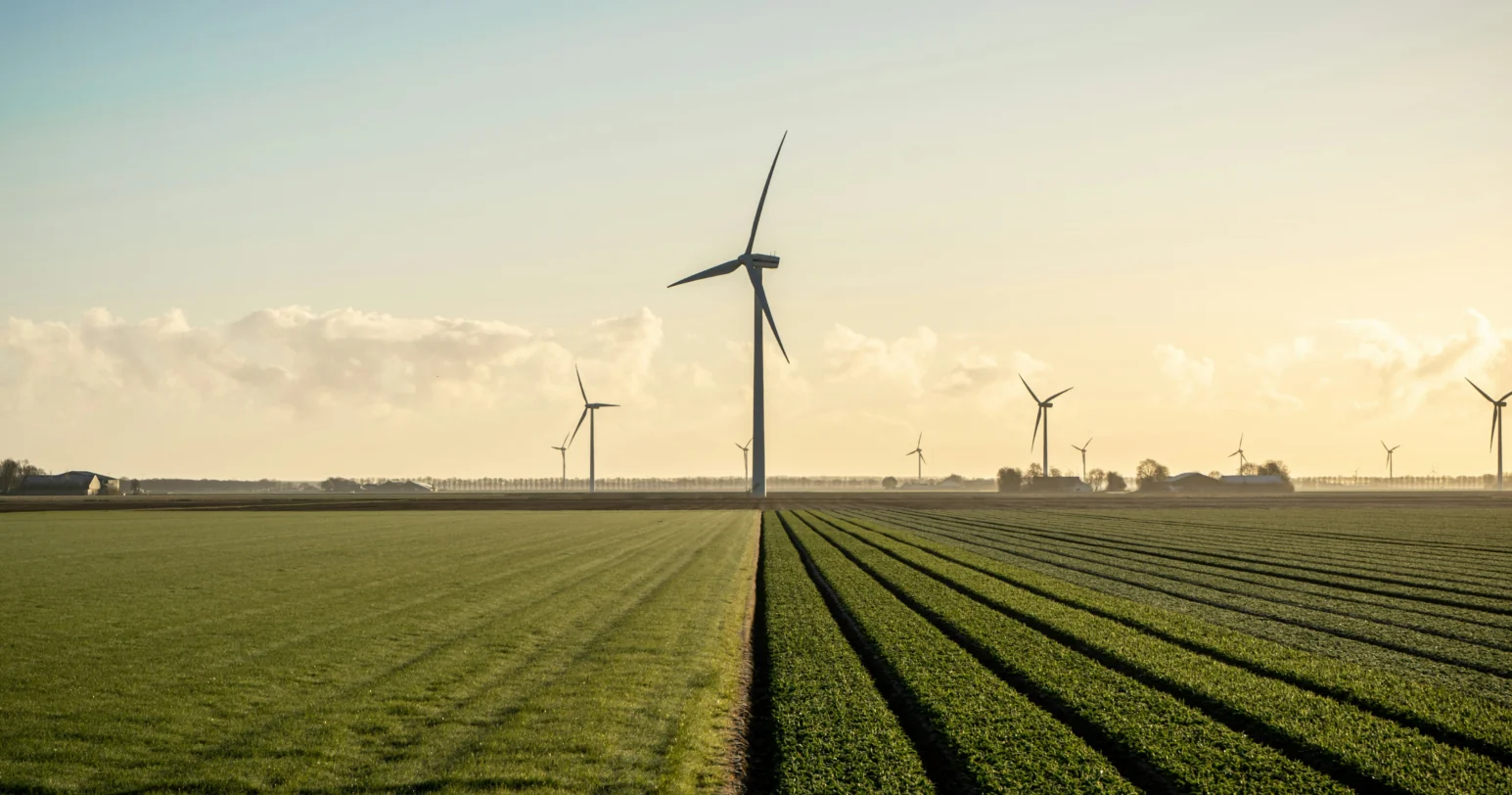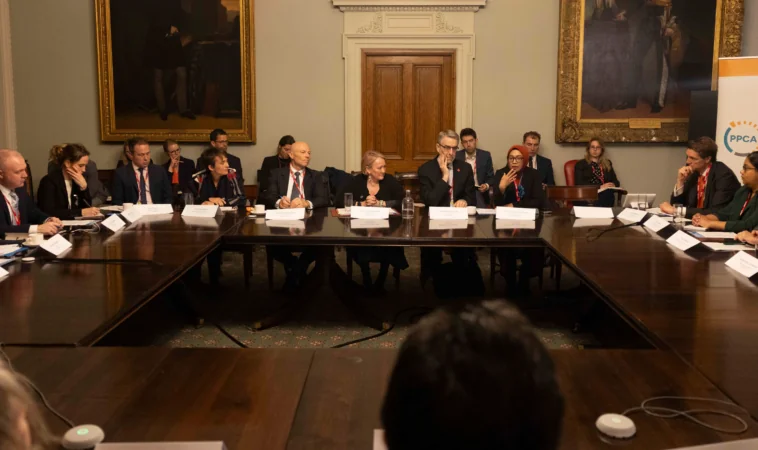
On August 29 the PPCA’s second Solutions Dialogue was held in Santiago, Chile featuring government, business and finance leaders as well as experts from across the Latin American and Caribbean (LAC) region. Co-hosted by the government of Chile and Innovation Regions for a Just Energy Transition (IKI-JET), the Dialogue highlighted ambitious commitments and innovative solutions developed in the region that can help other countries overcome challenges in their coal phase-out efforts and put forward more ambitious coal phase-out commitments as they craft their new Nationally Determined Contributions (NDCs) and energy plans.
Latin America leads global coal phase-out efforts
Held in the Government of Chile’s National Electrical Coordinator’s (ISO) headquarters, the Dialogue was the perfect opportunity to showcase the progress of PPCA members in the LAC region. The PPCA now includes 9 Latin American and Caribbean members (Chile, Colombia, Costa Rica, Dominican Republic, El Salvador, Mexico, Panama, Peru and Uruguay), who have been leaders in transitioning away from coal and in the deployment of clean energy.
In 2023, coal only made up 5% of the region’s electricity generation. As in other rapidly developing regions, electricity demand in the LAC region is growing fast. However, the region is delivering an energy transition at a scale that can absorb this growth, there are almost no new coal plants planned, and renewables are being deployed at pace: the region now generates 64% of its electricity from clean sources, well above the global average of 39%.
Medardo Cadena, Director of Studies, Projects and Information at Latin American Energy Organisation (OLADE) said:
“We can say that we are the greenest region on the planet. However, this creates the false sensation of a task completed. In reality, we still have a long way to go.”
The Dialogue focused on the practical solutions being developed in the region to overcome challenges in phasing out coal related to retiring plants early, organising a just transition and managing the power grids. The aim was to share insights and identify available support to help countries in the region and beyond move away from coal even further and faster.
Early planning can unlock funds for early retirements of coal plants
The first panel session of the day showed that innovative financial mechanisms for early retirement of coal power plants are already being deployed, and that national governments have a key role to play in delivering the right policy environment to incentivize investment. A prime example of this is in Chile where one of the first ‘coal transition mechanisms’ (CTMs) has been deployed. Worth $125 million, this blended finance included commercial loans from IDB Invest and China Fund for Co-financing in Latin America and a concessional loan from Climate Investment Fund (CIF) tool has helped ENGIE retire units 14 and 15 of the Tocopilla coal plant, allowing the company to build a 151 MW wind farm instead. Alex Santander of the Chilean Ministry of Energy announced that to encourage further coal retirements, Chile is soon going to approve an update to its air pollution standards for thermal power plants. In the same vein, Colombia will include coal in its carbon tax scheme from 2025. Both policies aim to reflect the true environmental impact of coal, incentivise the adoption of renewables, and strengthen the economic case for coal retirement. The intended result: cleaner air and cheaper energy, whilst maintaining economic growth.
Another key example in the LAC region can be found in the Dominican Republic, where the government has partnered with the Climate Investment Funds (CIF) to phase out its coal power plants. Currently in its scoping phase, the plan brings together government institutions such as the country’s Ministry of Energy and Mines and Multilateral Development Banks including the Inter-American Development Bank and the World Bank. $85 million has been allocated by CIF for the plan’s implementation.
A cleaner grid can ensure secure stable supply of electricity
The first session also included discussion on energy security, particularly on how to maintain secure grids whilst transitioning from coal to clean. The experience of the LAC region clearly shows that with the right polices, a secure and dynamic grid can be achieved whilst expanding renewable generation. In the efforts to achieve this, speakers outlined how investment in renewables and storage systems, development of grid infrastructure, innovations in grid operations and regulations must work hand in hand.
As Jorge Gutierrez-Garcia of the Carbon Trust noted “What we need is government leadership that is robust, clear regulations that provide certainty, and transparent, open processes to engage stakeholders”.
Juan Carlos Olmedo, Director of the Chilen national electrical coordinator CEN announced that CEN is working to ensure Chile can effectively operate a 100% renewable grid by 2030. To ensure this energy supply is stable and consistent, CEN is improving their forecasting techniques for renewable generation and securing flexible resources to meet demand when certain renewables are unavailable.
María José García Cabello, from the Chilean Ministry of Energy, representing Net Zero World Initiative affirmed that a stable grid is not just about increasing renewable generation, but also about ensuring adequate transmission and distribution infrastructure. The NZWI provides support to governments to advance decarbonization of energy systems and has been working with Chile and Argentina in the LAC region. Speaking on her work with the Chilean energy ministry she noted: ‘Our project on grid modernization and decarbonisation includes looking at how to reduce losses and congestion in transmission lines and to increase their capacity’.
Just transition plans set to create thousands of jobs
The second session covered solutions aimed at ensuring a just transition. Here, speakers clearly set out how effective planning can not only mitigate the social impacts of coal phase out but boost the economies of coal dependent regions and nations.
Chilean Minister of Energy Diego Pardow noted “Eliminating emissions is a first line objective, but this needs to be done jointly with communities. What comes after must be better.” Chile’s Just Energy Transition Strategy in 2021, for example, aimed to address the challenges created by retirement of coal power for 13,000 workers and communities through a plan developed through participation by workers, citizens, industry, local communities and international organisations. This proactive approach to planning looks set to result in the creation of between 32,000 and 40,000 direct and indirect jobs and between US$1.7 and US$1.8 billion in value added by 2030.
Another example comes from Colombia, where the government has approved regulations that encourage local communities and indigenous groups to produce energy through renewable sources and sell it to the national grid (BBC). Veronica Vukasovic, from IKI JET also added how the upcoming demand for skilled labour is resulting in innovative collaborations. Private sector contractors and transmission line owners in Colombia are investing in the training of workers through initiatives such as Tener Futuro, so that workers can build the skills necessary to take advantage of the employment opportunities in the build out of transmission lines.

As Chile announces ambitious plans to support NDCs, other countries must follow suit
At the Dialogue, Chile’s minister for the environment Maisa Rojas stated that at COP29, Chile will present a draft National Socio-Ecological Just Transition Strategy, which intends to protect human rights and maximise the social and economic opportunities of the transition in key territories. And at COP30, Chile will present a new Nationally Determined Contribution (NDC), having already included coal –phase-out in its last iteration. This commitment by Chile sends a clear signal of intent to ensure just transition and coal phase-out are included in its national transition plans.
Speakers at the Dialogue highlighted how ambitious commitments on coal, clean energy, and just transition, and plans that can effectively deliver on this ambition create a much-needed certainty on the direction of travel for the whole society. In Chile the government reached a voluntary agreement with plant owners in 2018 to not build any new coal, and in 2019 to gradually shut down coal plants by 2040, thereby creating a long timeline for communities, industry and investors to plan and act. Now, Chile is also working on finalizing a Decarbonization Plan that will establish the enabling technical and socio-environmental conditions needed to further accelerate coal retirement. It is also noteworthy that Panama has already submitted its 2025 NDC, which includes a commitment to phase-out coal power by 2026.
These actions in the LAC region should be an inspiration for countries to raise the ambition of their NDCs, energy plans and Long-Term Strategies by committing to no new coal and coal phase-out.
What’s next for the PPCA?
The transition from coal to clean is a huge challenge. But, as the achievements of PPCA members in the LAC region show, it is not only achievable, but also helps build fairer, more secure and more prosperous societies.
The PPCA is committed to helping coal-dependent countries implement the solutions necessary to achieve this, from more dynamic grids to just transition plans. Through knowledge sharing, the mobilisation of finance, and building partnerships we aim to deliver a just transition at pace.
- The PPCA Solutions Dialogues series enables the sharing of best practices and demonstrates that the coal-to-clean transition is both achievable and beneficial. Next, we have upcoming Dialogues in New York, Singapore, and Azerbaijan for COP29. Find out more here.
- The Coal Transition Commission, hosted by the PPCA, brings together governments, public and private finance to develop practical policy steps that can unlock public and private finance for managed phase-out of coal.




